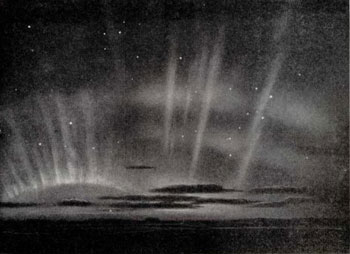+IHS PASSION OF OUR LORD: THE 37. MEDITATION OF his mocking upon the cross
GIOTTO di Bondone
Crucifixion
1315-20
The 37. Meditation of his mocking upon the Cross.
And they that passed by, blasphemed him,shaking their heads and saying: Vah, thou that destroyest the Temple of God, and in three days doest build it again, save thy self. If thou beest the Son of God, come down from the Cross.
Consider first, that Christ our Lord was mocked upon the Cross, by 4. sorts of people, by those which passed by, by the Priests & Seniors, by the Soldiers, and by the Thieves, that is, by all sorts of men; Jews, and Gentiles; Priests and lay persons; Senate and the people, the executioners of Justice, and those that were condemned by justice. For we deride and mock Christ by all kinds of sins, contemning his promises, disposing his threatening, rejecting his benefits, breaking his Commandments, and neglecting his councils.
Consider secondly, the difference between the words of the Jews; the words of our Savior, and the words of the world. He being careful prayeth with tears, they being careless mock him whilst he is praying. For the custom of the wicked is to scoff at all things: and therefore in the Scripture they are called (irrisores) mockers; to whom God doth threaten mocking again, when that shall happen to them, which they feared. Have compassion here upon the spouse of thy soul, who in the last hour of death received no comfort, but mockings: from which they ought then especially to have abstained when he was ready to die, in the midst of his torments.
Consider thirdly, they blasphemed, Who passed by, which may be interpreted, Walking that he may be said to have been mocked either by travelers, or else by such as walked up and down by the Cross. Hereby are noted light and inconstant men, who carelessly say their divine and holy office, who slightly run over their prayers, who in the Church at the time of Mass and of Sermons have wandering thought, whose minds do not rest only on God, but are carried wandering up and down after sundry delights and pleasures of the world,
Consider fourthly, what these men did. First they passed by irreverently.Secondly,they shaked their heads. Thirdly, by these very gestures they did blaspheme: frothy signified hereby, that he was worthy of all reproach that he might, to be taken from amongst them, and that his doctrine and life was to be contemned and despised. Fourthly, Isaias, according to the exposition of St. Jerome, fore-shewed two other kinds of mocking. Over whom did ye play? over whom did ye gape, and out forth your tongue. Therefore they upbraided him with open mouth and stretched out tongue. And even as Stage players in the Theaters use to make many sports before the Princes, which are placed in high rooms to behold them: so these mocking actors used many kinds of scornful behaviors before the king of the Jews.
Consider fifthly, what words they spake. First they falsify his words, scoff at his preaching, and prophecies, and wrest his holy words to an evil sense. Secondly, they jest at this miracles; if thou hast wrought true miracles, show now thy power and save thyself. Thirdly they offer wrong against his person, whom they deny to be the son of God. Do thou believe the words of God, admire his miracles, preserve thy mind free from all error in faith, receive Christ the son of God, and never forsake or pass by him. For they which in this life passing by Christ, do blaspheme him, shall in the next world pass by heaven and fall into hell.
II
In like manner with them did the chief Priests, and the Scribes, and Seniors deride him; and mocking they said one to another: he saved others, himself he cannot save: if he be the king of Israel, let him now descend from the Cross, that we may see, and believe him: he trusted in God; let him deliver him now, if he will: for he said, that I am the son of God.
Consider first, that the Priests religious men, and Magistrates did, contrary to the dignity of their order, insult over a crucified man, and that they were the leaders or captains of the people in these erosions, for St. Luke saith thus: the Princes derided him with them. So great a desire they had to obscure the glory of our Lord, and that there should never after be any mention made of him; that all sorts of pool thought him unworthy of commiseration even in the midst of his torments being ready to yield up his ghost, and had contemptuously rejected him as accursed, and as the shame and scorn of the people, to be mocked both by the noble and vulgar people. But there is no council against God, who changed this great ignominy of the people into greater glory.
Consider secondly, that Christ was blasphemed more grievously by no kind of people,then by the Priests. For they provoked one another mutually to scorn him, and also abused the words of the Scriptures, which were fore-spoken of these blasphemies by the Prophet, which they rented by turns like verses of a psalm. Thou seest therefore, that the faults of superiors are most grievous, who also shall suffer mighty torments for they sins.
Consider thirdly, and mark their words: First they upbraid him with his good deeds done to the people, and scoff at his miracles. Secondly, they laugh at his royal dignity. Thirdly, they object against him his trust in God. Fourthly, they contemn the majesty of the Son of God, and maliciously mock at the things, which should bring honor unto Christ. The Magi did adore him in the stable with gifts, as God, King, and man: and these men, after so many miracles showed unto them. to mock and deride the son of God, the king of kings, and man trusting in God.
Consider 4. their evil collections: First, if he have saved himself also. 2. If he be the king of Israel he ought to descend down from the Cross. Thirdly, if he trust in God as the Son of God, God will deliver him. But first he did not therefore save himself; because he would save other by his death. Secondly, he did not therefore descend down from the Wood, because the King of Israel should reign from the Wood. Thirdly, God did not therefore deliver his Son, because he trusted, not to be delivered by him from the Cross. but by the Cross to be exalted above all creatures, and to place thee in glory with him.
Consider fifthly, that evil, men give council to descend, the devil being the author, who said, If thou art the Son of God, throw thyself down. Whereby they mayest learn, that all those descend from the height of perfection, which cast aways the Cross from them. do thou pray devoutly untoChrist to rule and guide thee from his Cross, that is from his throne of mercy, and also to take thee up with him unto the Cross.
Consider secondly, that Christ was blasphemed more grievously by no kind of people,then by the Priests. For they provoked one another mutually to scorn him, and also abused the words of the Scriptures, which were fore-spoken of these blasphemies by the Prophet, which they rented by turns like verses of a psalm. Thou seest therefore, that the faults of superiors are most grievous, who also shall suffer mighty torments for they sins.
Consider thirdly, and mark their words: First they upbraid him with his good deeds done to the people, and scoff at his miracles. Secondly, they laugh at his royal dignity. Thirdly, they object against him his trust in God. Fourthly, they contemn the majesty of the Son of God, and maliciously mock at the things, which should bring honor unto Christ. The Magi did adore him in the stable with gifts, as God, King, and man: and these men, after so many miracles showed unto them. to mock and deride the son of God, the king of kings, and man trusting in God.
Consider 4. their evil collections: First, if he have saved himself also. 2. If he be the king of Israel he ought to descend down from the Cross. Thirdly, if he trust in God as the Son of God, God will deliver him. But first he did not therefore save himself; because he would save other by his death. Secondly, he did not therefore descend down from the Wood, because the King of Israel should reign from the Wood. Thirdly, God did not therefore deliver his Son, because he trusted, not to be delivered by him from the Cross. but by the Cross to be exalted above all creatures, and to place thee in glory with him.
Consider fifthly, that evil, men give council to descend, the devil being the author, who said, If thou art the Son of God, throw thyself down. Whereby they mayest learn, that all those descend from the height of perfection, which cast aways the Cross from them. do thou pray devoutly untoChrist to rule and guide thee from his Cross, that is from his throne of mercy, and also to take thee up with him unto the Cross.
III
The Soldiers also mocked him, coming, and offering Vinegar, saying, if thou art King of the Jews, save thy self.
Consider first, the great contempt, wherewith our Lord was mocked by these base tormentors both in words and deeds. First (they mocked him) using wanton and scurrily gestures towards him. Secondly, they came nearer to him being naked, and looked more curiously upon him, according to that of the Psalmist: But they considered, and looked on me. Thirdly, they offered him vinegar. like Cupbearers, offering a cup to their King. Fourthly, in their words they allude to the title of the Cross. King of the Jews: they say he is a ridiculous King, which cannot save himself, upon whom dependeth all the safety of his subjects.
Consider secondly, that wicked men do acknowledge no other commodity or safety, but only in this life: but good men desire and seek after the salvation of their souls, as a thing which is common to them with the Angels; respecting less the safety of their bodies, which the beasts do enjoy, as well as they.
Consider thirdly, the infinite love of Christ thy Lord, and spouse of thy soul toward thee; who having once ascended the Cross for thy sake, could never be moved to come down from thence, neither by torments, nor buy the mockings, nor by the sorrow of his mother standing by him, nor by the tears of John his kinsman, nor by the tears of Marie Magdalen, not by any sorrow of his friends, although he knew, that thereby he might easily end all their troubles. Do not thou therefore, when thou hast undertaken any thing for the love of thy spouse, and for his honor, leave it off for any cause, although the world frown thereat; although thy flesh be repugnant; although thy mother show thee her breasts, wherewith she gave thee suck: and although thy old Father lie in the gate: pass thou on, and tread upon thy Father; for it is piety, to be cruel in this cause. Pray unto God, to give thee this constancy of mind, and setting before thine eyes him that was crucified, take courage before him, and in his presence determine of all thy business.
~ Fr. Francois Coster S.J.
~ Fr. Francois Coster S.J.







Comments
Post a Comment